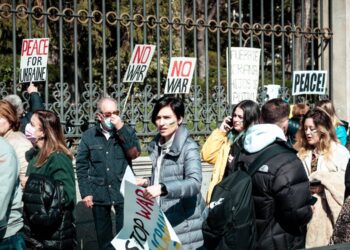In an alarming trend, the Foundation for Individual Rights and Expression (FIRE) reports a disturbing increase in restrictive speech policies across top U.S. colleges and universities. With nearly 9 in 10 of these institutions implementing at least one policy that curtails student speech, the landscape of free expression in higher education appears increasingly under siege.
Notably, private institutions exhibit more stringent restrictions compared to their public counterparts, despite assurances to adhere to First Amendment principles. The recent scrutiny of speech policies at prestigious schools like Yale and Stanford, especially in the context of the Israel-Hamas conflict, underscores the growing concern over censorship and the policing of student discourse.
This article is a summary. Please read the original article by the FIRE Foundation think tank website, here
FIRE’s 2024 Spotlight on Speech Codes report reveals a concerning picture: 20% of evaluated schools received a “red light” rating for policies that significantly impede freedom of speech, while a majority of 65.4% landed a “yellow light” rating for having policies that could potentially censor protected speech. Only a small fraction achieved a “green light” rating, indicating no serious threats to student speech.
This backslide in free speech protections marks a departure from over a decade of progress, highlighting the increasing inclination of America’s elite educational institutions towards censorship. The implications of such policies are profound, not only stifling student expression but also potentially infringing on their constitutional rights.
The report emphasizes the need for schools to refine their policies, particularly those labeled as “harassment,” to ensure they do not overreach into the realm of protected speech. Examples of misuse include investigations into pro-choice student criticisms, charges of “cyberbullying” for a Trump Zoom background, and accusations of threatening mental health through a scavenger hunt.
Despite the challenges, FIRE remains committed to advocating for policy reform, aiming to reverse the trend of increasing censorship on campus. As political pressures mount and schools contemplate revising their speech standards, the call for upholding and strengthening free speech protections becomes ever more critical.
In the face of these challenges, the academic community and its stakeholders must rally for policies that not only respect but champion the principles of free expression, ensuring a vibrant and open discourse in higher education.





